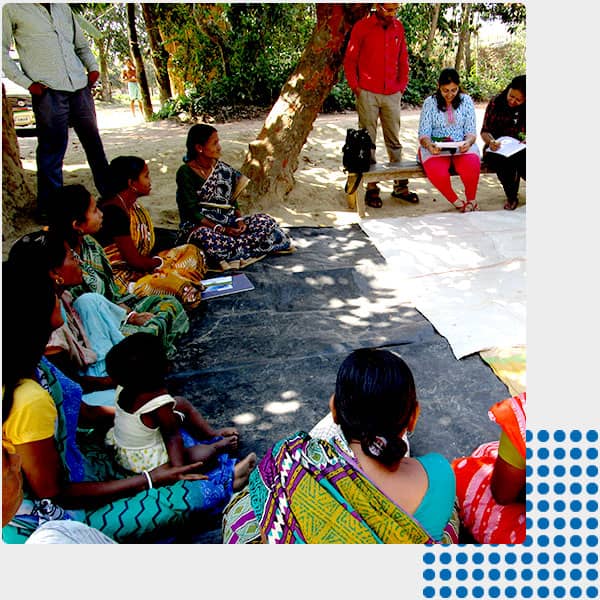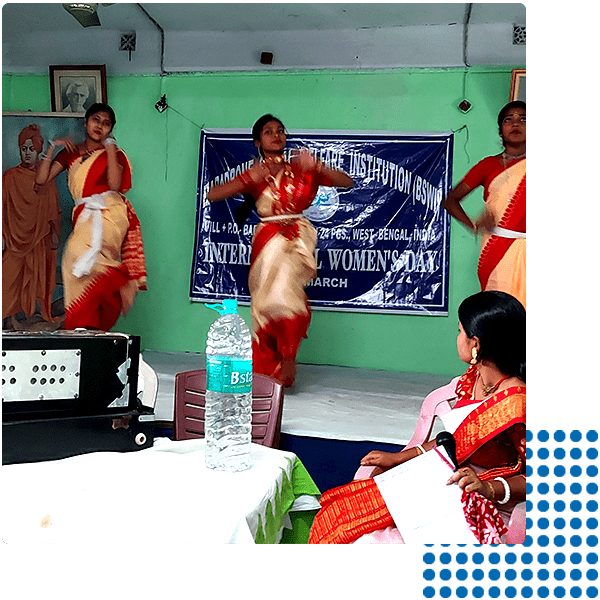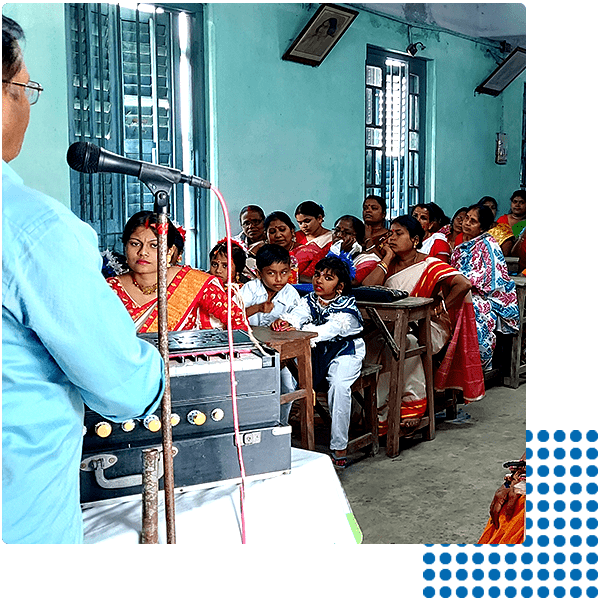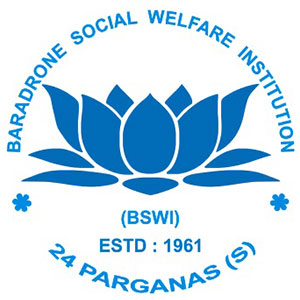Organisation Building & Empowerment

Women’s empowerment has become a significant topic of discussion in development and economics. It can also point to the approaches regarding other trivialized genders in a particular political or social context. Women’s economic empowerment refers to the ability for women to enjoy their right to control and benefit from the System and the Society.
BSWI believes that empowering girls and women is powerful. Today, we know it is the key to economic growth, political stability, and social transformation. World leaders, experts and scholars alike are giving their voice to this critical endeavour. When women succeed, nations are more safe, secure and prosperous. The Women’s Empowerment Principles are a set of Principles for business offering guidance on how to empower women in the workplace, marketplace and community. They are the result of collaboration between the National/International Entity for Gender Equality and the Empowerment of Women. BSWI opines that the empowerment and autonomy of women and the improvement of their political, social, economic and health status is a highly important end in itself. In addition, it is essential for the achievement of sustainable development.
Activities

Capacity building
BSWI, with its long-standing experience in community organization, provides capacity building support to small groups and local organizations working for people’s rights as they find it difficult to obtain information and inputs on their own. BSWI assists four hundred community based SHGs and producers’ collectives in its different project areas in capacity building, education and health, legal aid, linkages, information and documentation, organization management, financial support, campaign support, marketing and technical expertise.
Support to Development Activities
BSWI implements development programs in the project villages through local community participation to meet their basic requirements of housing, drinking water, education, health services, etc. by linking up with either government departments like SC & ST Welfare, Panchayat Raj and Rural Development, or with institutions/organizations concerned with the development of the vulnerable groups. BSWI also encourages communities to build up local sustainable institutions for over-coming exploitation through women’s thrift societies, producers’ collectives (mango, fish, goats etc.), health and education committees and farmers’ associations.


Information support
The United Nations Development Program constituted eight Millennium Development Goals (MDG) for ensuring equity and peace across the world. The third MDG is directly related to the empowerment of women in India. The MDGs are agreed-upon goals to reduce certain indicators of disparity across the world by the year 2015. The third MDG is centered towards promoting gender equality and empowering women: “Eliminate gender disparity in primary and secondary education, preferably by 2005, and in all levels of education by no later than 2015”. While India’s progress in this front has been brave, there are quite a few corners that it needs to cut before it can be called as being truly revolutionary in its quest for understanding what women empowerment is.
As UNDP says, “India missed the 2005 deadline of eliminating gender disparity in primary and secondary education. However, as the Government of India MDG Report 2009 notes, “participation of women in employment and decision-making remains far less than that of men, and the disparity is not likely to be eliminated by 2015.” Communities affected by private or government projects have a right to information on these projects and their likely impacts. Information should also be accessible to local groups and communities on legal rights, laws and regulations, and other programs relevant to them. As there is an information-vacuum due to reluctance from government and industries in sharing it, BSWI collects information, compiles into brief informative documents and disseminates it. Demystifying legal and technical information, particularly in the context of development projects and spreading this literature in the vernacular is another important activity of BSWI.

Linkages
Small local groups need to come out of their isolated struggles as issues affecting people are based on micro-level policies of the state. BSWI, with its experience and access to other people’s networks helps local struggles by providing linkages to larger movements and fora so as to build up a strong lobby support for the issues in the regions.
Technical expertise and alternatives
BSWI supports small organizations and communities with technical expertise in seeking alternative sustainable development designs which can be managed by the communities. This includes harnessing locally available natural resources for meeting basic needs of food, income and employment. With the help of the technical experts BSWI also took up impact assessment studies and gave constructive alternatives which are ecologically and socially enduring and press for balanced development.
Research and Documentation
BSWI took up research, studies and prepared reports on issues related to tribal/scheduled areas, environment, human rights, land alienation, rural development programs, legal issues, etc. Some of the studies undertaken by BSWI have been on the impact of the Natural Resource Management, Business development by local producers, Long Term Perspective Planning, and feasibility studies for micro-finance project.


Women’s Empowerment
The coverall objective of this sector is to empower women to fight against poverty, exploitation and subjugation and enable them involve fully in development activities to meet the millennium development goals. The specific objectives are to empower women and young girls economically and educationally to enable them participate in development activities, initiate the community to advocate for support and education of girls, to increase the enrolment of girls in the school, to change the life of poor women and their families through revolving fund provision and empower their households economically.
Social Empowerment
BSWI carries out major activities like conducting community mobilization workshop for different community members and reducing harmful traditional practices, educational support to poor in school girls, revolving fund provision for poor women and engaging them in different income generating activities, training self-help group members in income generating activities, formation and strengthening of women’s producers’ groups and women-farmers’ clubs. BSWI works in 65 villages of South 24 Parganas, Malda and West Medinipur districts of West Bengal for a total of 485 self Help Groups (SHGs) of women. A total of 5165 women from the marginalized sections have participated this activity.
BSWI conducts different activities such as advocacy and sensitization workshops for community, religious and women representatives and concerned bodies on gender equality, human rights (women’s right) and child rights.
BSWI organizes Sensitization Workshops for religious and local leaders on women’s rights and gender equality. This activity is intended to bring changes in attitude of the community towards women, reduce violence of their rights, and ensure their equality.
Economic empowerment

Formation of SHGs: BSWI utilizes a cadre of trained leaders of its existing SHGs to expand the social mobilization to new pockets in adjoining blocks. The activities involved were:
- Micro-Credit
Supporting poor women through provision of revolving fund: BSWI through its SHGs, supported 3412 women with micro-finance averaging from Rs. 2000 to Rs. 5000 for doing various household income generating activities. - Capacity building: SHG & Federation members
The group members/leaders, Federation leaders are provided training and orientation in leadership, gender, rights, communication skills, group dynamics, managerial aspects, maintaining accounts, PIME and regulation of their savings and credit program. BSWI also organizes workshops that have the twin participation of both the women’s SHGs and the Federation members as well as the leaders of the Panchayats, banks and government officials. - Livelihood Planning
BSWI works with both men and women in the family, helping them to improve their livelihoods and access complementary services from public and private institutions. Combining PRA tools such as livelihood and resource mapping, interventions such as achievement motivation training, area planning and envisioning exercises, BSWI helps SHG members and their families develop medium-term livelihood goals for themselves. Various participatory learning tools including pictorial-based methodologies are used to help women track and analyze events in their lives and livelihoods, while making plans for changes. Exercises are conducted in groups as well as with each household in the project villages. They are not one-time inputs given to the groups but are part of our ongoing engagement with the women. - Group based Enterprises
BSWI promotes self-help groups of women in its project villages. The members of the self-help groups need earning from rural enterprises. BSWI realizes that it could train and provide economic benefits in various animal rearing activities with its expertise and dedicated manpower by setting up the enterprise units. BSWI has been able to provide training in various enterprises and facilitated setting up of their own enterprises to hundreds of women who have been able to cross the acute poverty line. The enterprise programs are run and managed by the producers’ groups under the supervision of our organization.

International Women’s Day Celebration
International Women’s Day is a vital program that BSWI observes with rallies, awareness camps, workshops and relevant cultural programs for the local public where all segments of the society are involved.

Workshop on International Women’s Day
Organization Building and Empowerment is an eminent intervention of BSWI on which BSWI stands for decades. Women’s associations and federations are the important tools through which our society can progress quickly and BSWI is doing this effort with more than 15000 rural women and men who are loving below the poverty line.

